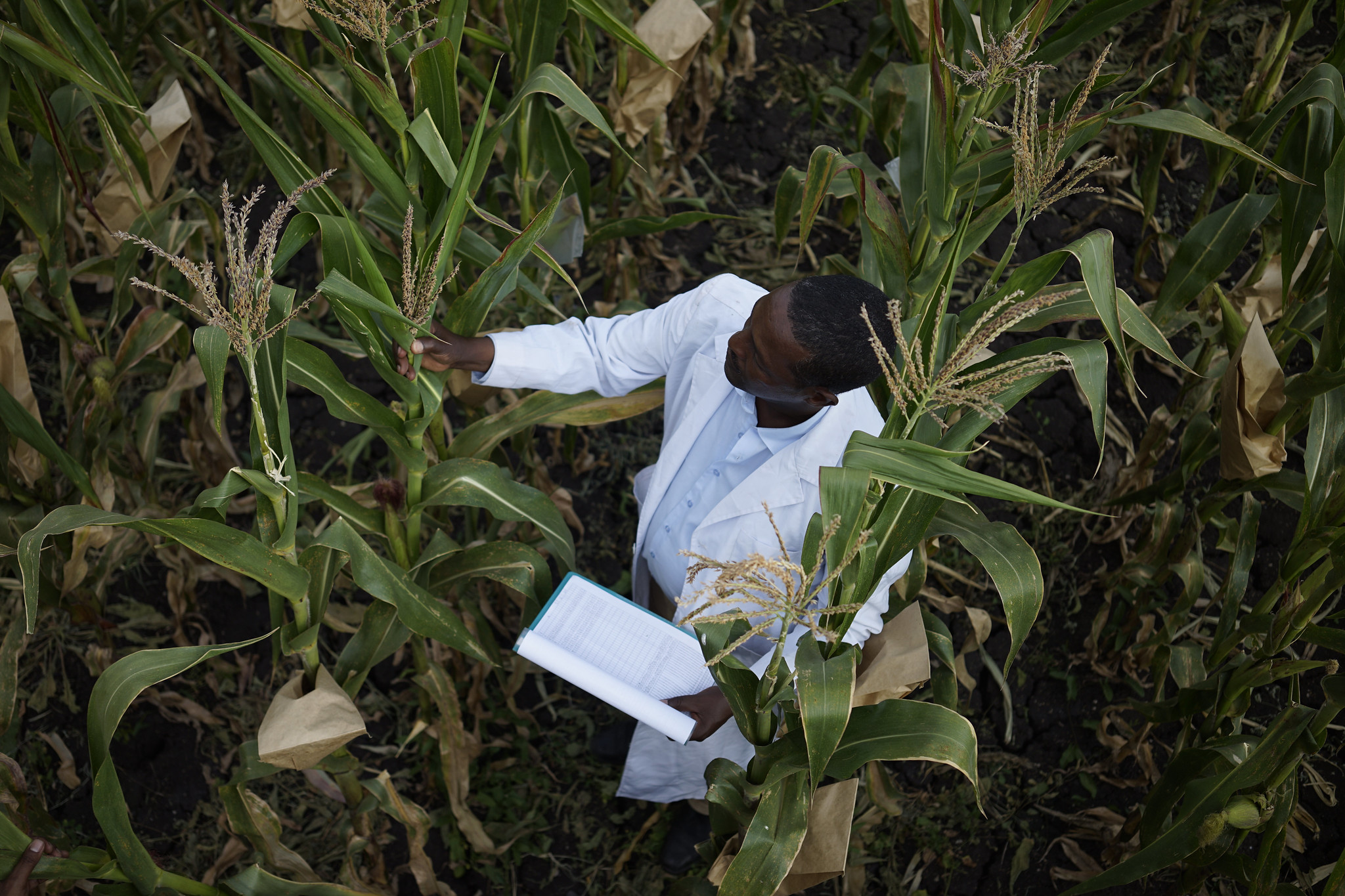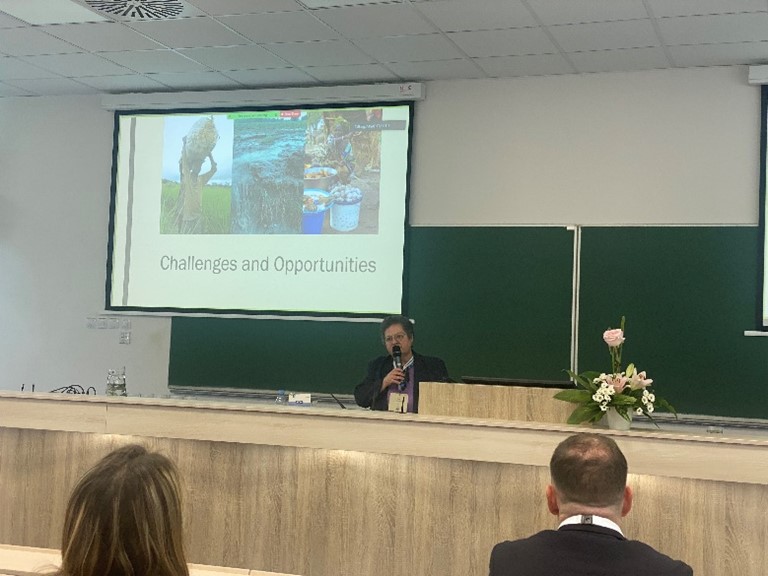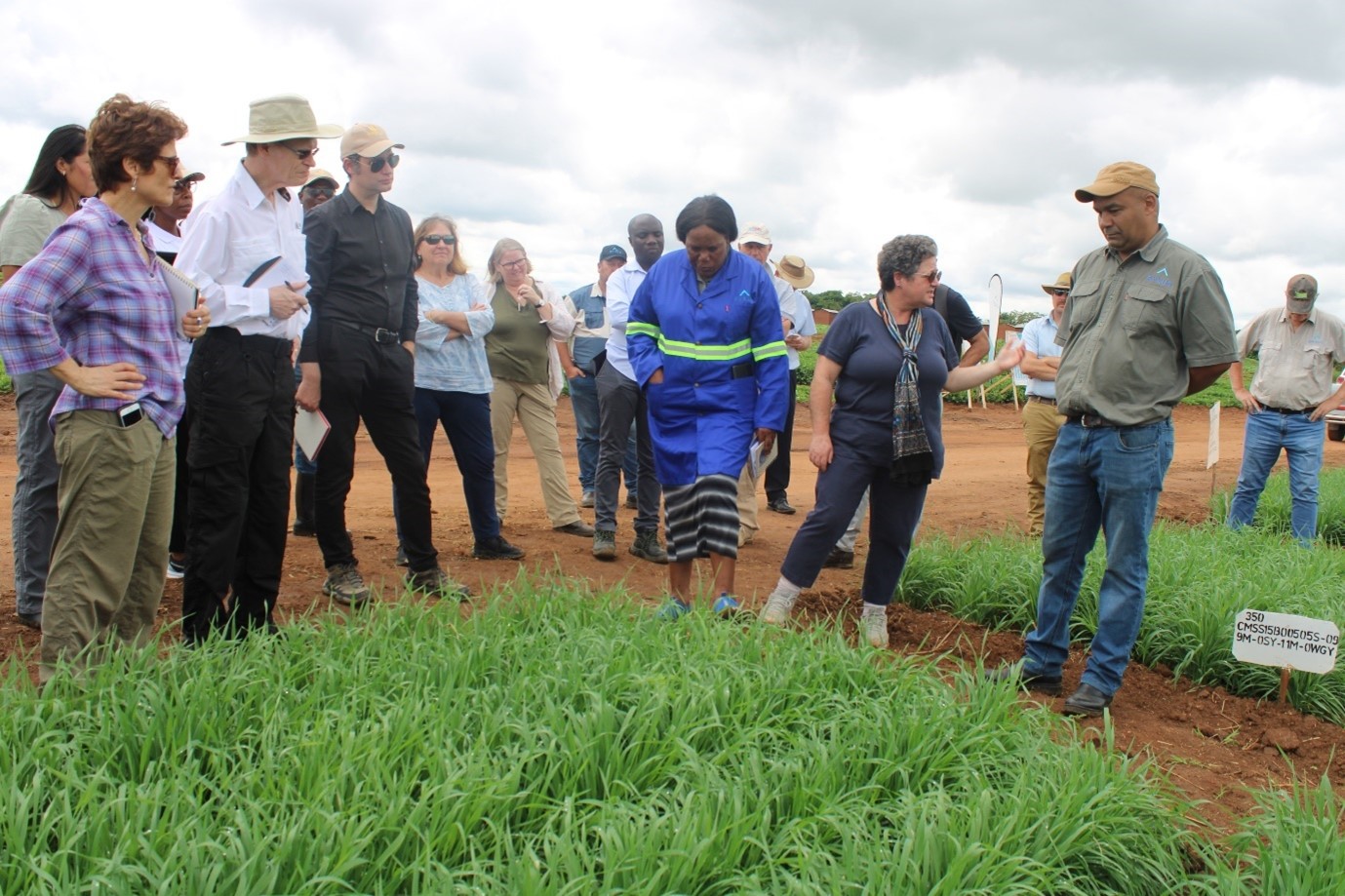
Scientists at the International Maize and Wheat Improvement Center (CIMMYT) are helping to scale up wheat production and productivity in Malawi.
The political conflict between Russia and Ukraine has disrupted food supply chains globally and Malawi’s wheat supply has been adversely affected. As a response, Pyxus Trading, the biggest agribusiness private company in Malawi, has endeavored to partner with CIMMYT to accelerate the growth of wheat production in the country.
At a recent visit by CIMMYT’s Director General Bram Govaerts, the executive management of Pyxus provided detailed updates of how CIMMYT has facilitated access to 100 improved wheat varieties now undergoing trials in Malawi. The visit was part of the Accelerated Innovation Delivery Initiative (AID-I), a new project funded by the United States of Agency for International Development (USAID).
Attending the Pyxus field visit was United States Department of State Special Envoy for Global Food Security Cary Fowler, Dina Esposito, Assistant to the Administrator at USAID Bureau of Resilience and Food Security, and other USAID staff.
Speaking at a field tour this January at the Pyxus farm headquarters, Commercial Manager John Gait expressed the importance of achieving self-sufficiency in countries like Malawi.
“It’s become very apparent with the global supply chain disruptions of wheat and related commodities that countries like Malawi should rise to a level of self-sufficiency for strategic commodities such as wheat,” Gait said. “Through the help of CIMMYT, we managed to obtain materials for 100 varieties which we have put under trial. Our objective is to select varieties that are most adapted to our agroecology and provide us with satisfactory yields and grain quality sufficient for our processing ambitions.”
CIMMYT Sustainable Agrifood Systems (SAS) Director Sieg Snapp affirmed CIMMYT’s support for private sector companies like Pyxus.
“When they told me they were searching for high performing genetic materials I told them about the Global Wheat Program and how such material could easily be obtained from our headquarters in Mexico,” Snapp said. “I immediately facilitated linkages between Pyxus and CIMMYT headquarters which saw the quick delivery of the varieties. Considering that it was quite recent, I am impressed to see that the trials are already so well established.”
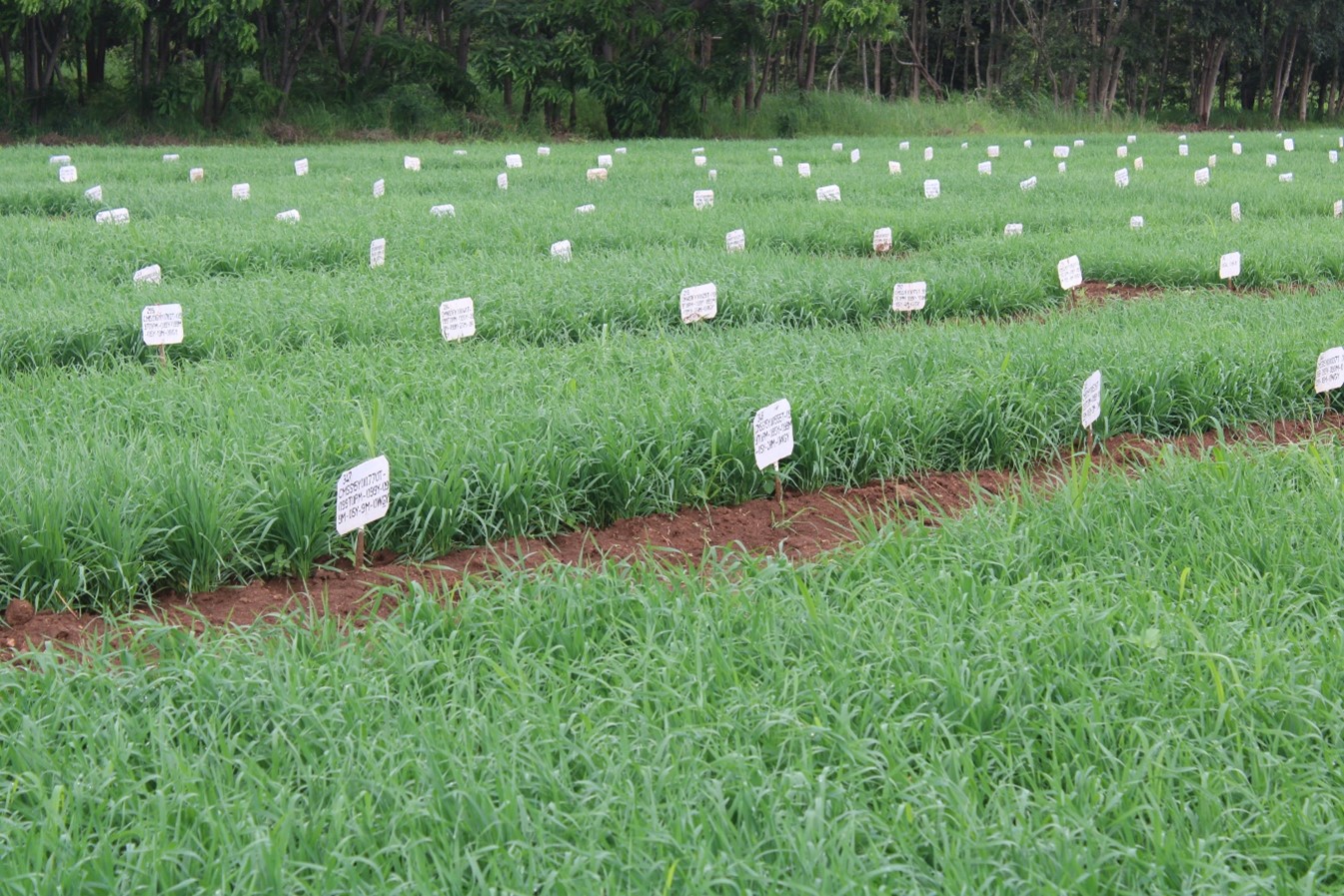
Achieving global food security will require cooperation and collaboration between partners from different sectors. One of CIMMYT’s strategic thrusts is to encourage public-private partnerships where national governments can leverage on the competencies and capabilities of the private sector.
“We aim to be catalytic in all our functions. We believe we have a critical role in ensuring that countries like Malawi have access to the best genetics to ensure that they meet their food requirements. I am happy Pyxus identified us a strategic partner to work with in their wheat program, and through working hand in hand with the government and other key players, the quest to achieve food self-sufficiency can have a shortened pipeline,” Govaerts said.
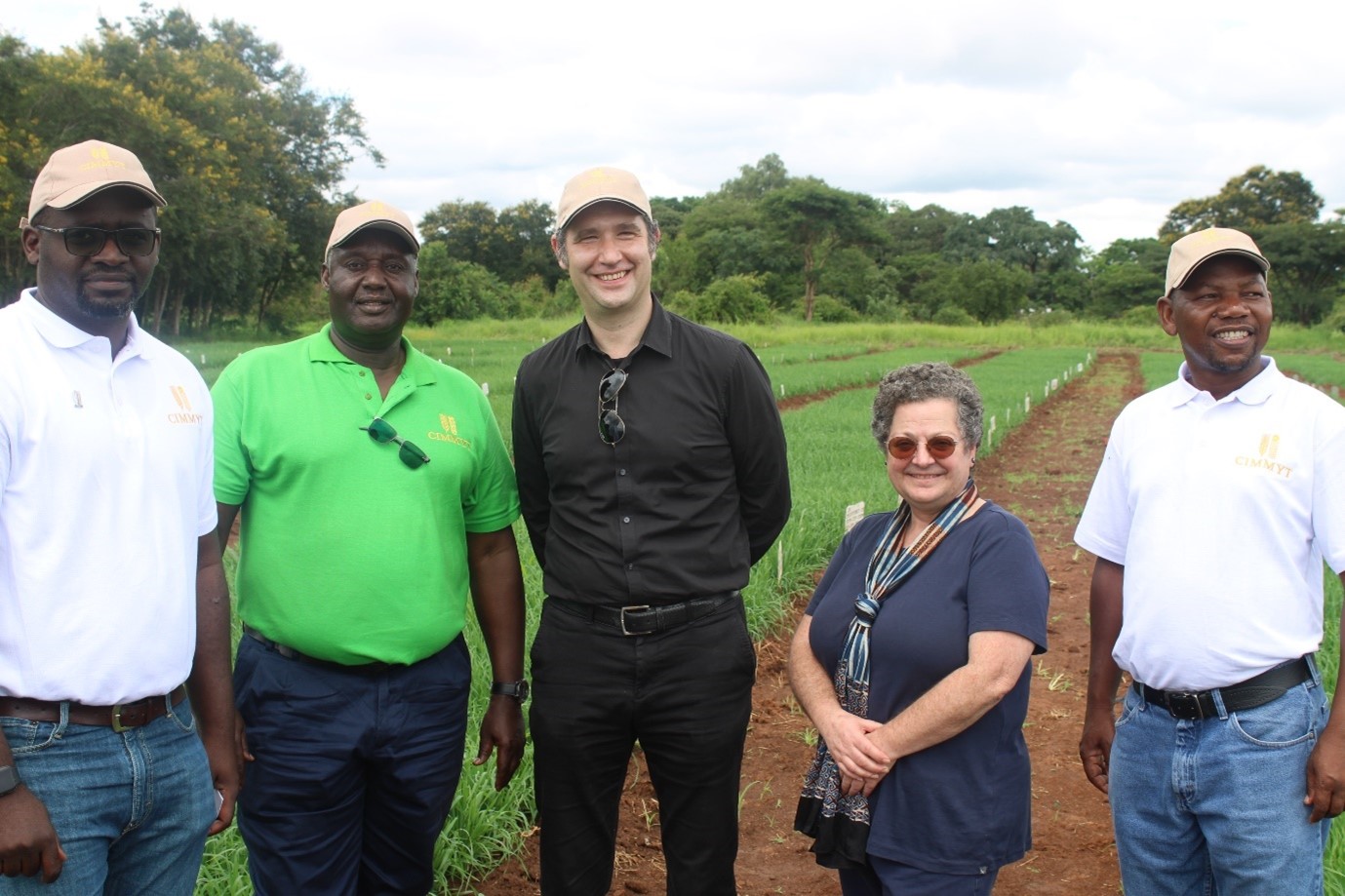
In addition to witnessing the wheat trials, Govaerts received a tour of the entire Pyxus operations which included the groundnut and forestry operations. Pyxus staff each took turns explaining the various business models the company was employing to contribute to Malawi’s export earnings and food security.
As a commitment to help Malawi realise increased wheat production, CIMMYT will be closely following the Pyxus trials and providing technical support to ensure that the best varieties adopted are rapidly scaled.
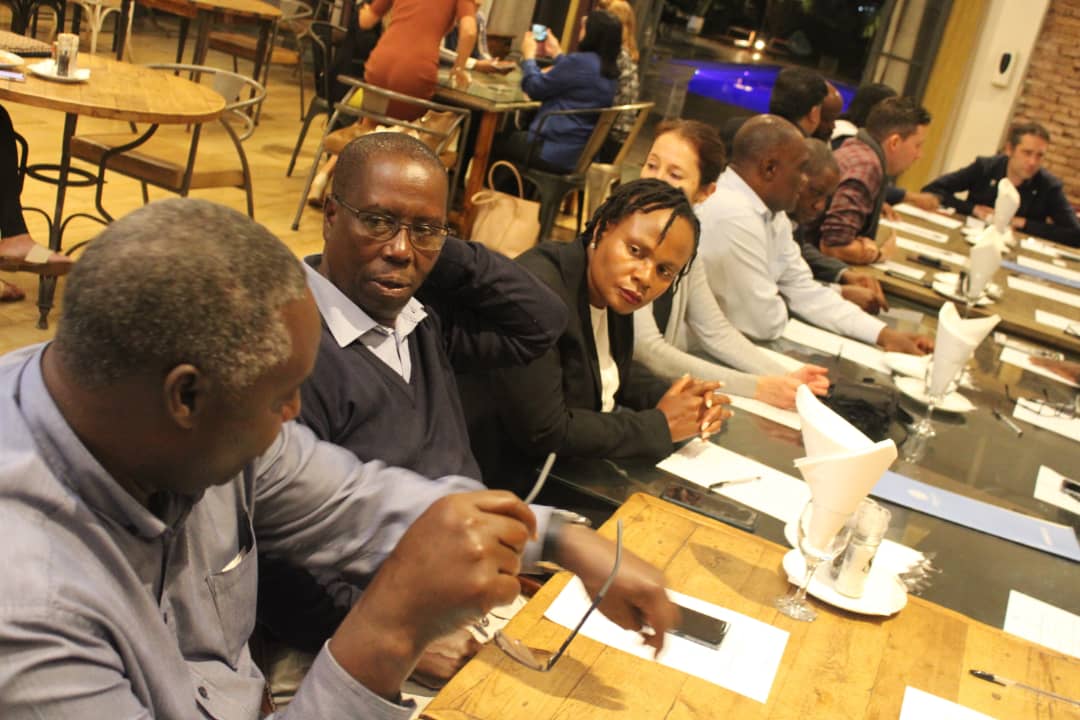
 Capacity development
Capacity development 